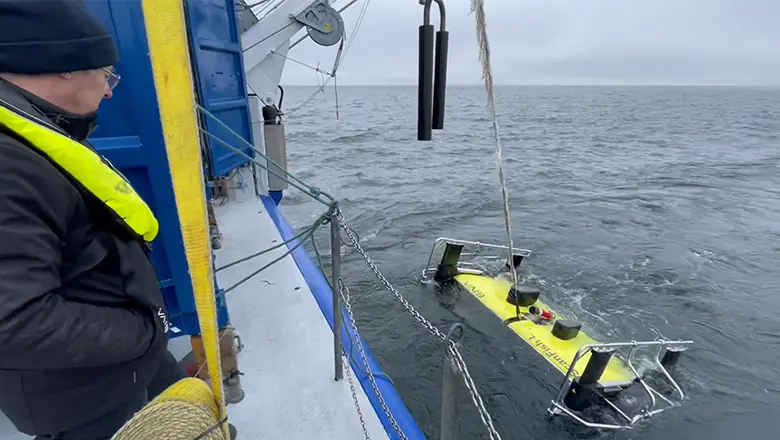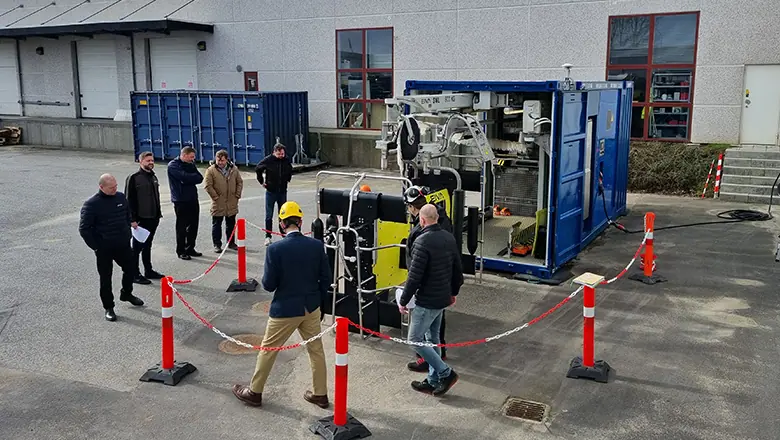The first of its kind, a containerised remotely operated towed vehicle (ROTV) solution, developed by EIVA for the UK Ministry of Defence (MoD), has now successfully completed Factory Acceptance Tests (FAT) – just 6 months after the contract was awarded to Danish subsea engineering specialist. Through containerisation, this new type of survey solution enables hydrographic surveys with multiple acoustic survey sensors and instruments to be performed from many different host platforms with very short deployment time.
‘The agility with which this total solution has been developed showcases that by combining our efforts with several strong players in the market, we can leverage our many years of experience. Together, we make way for new possibilities in defence and other maritime markets,’ explains Christian Thomsen, CEO of EIVA.
The components of this survey solution include SH Group’s 20’ Cube container module and launch and recovery system for EIVA’s ScanFish L ROTV, which is equipped with Sonardyne’s SPRINT-Nav Mini hybrid INS/DVL and Voyis’ Observer Pro optical camera and Insight Pro laser scanner. Two dedicated computer workstations are built into the container and equipped with EIVA’s NaviSuite software for efficiently processing and analysing the collected data.
Factory acceptance test of the containerised ROTV solution at EIVA HQ
‘After visiting EIVA headquarters for the FAT, we were extremely happy with the system developed. The EIVA team have worked hard to deliver a capability that will expand the survey capability of our ships, enhancing survey operations and features within our Future Military Data Gathering programme. We look forward to the next steps including commission testing and training with the Royal Navy’s specialist Hydrographic teams.’ said Lieutenant Commander Mark Butcher, Royal Navy.
EIVA is working with Forcys, a global maritime defence company and EIVA’s sister company in Covelya Group, to ensure the solution aligns with the current requirements of Navies for portability, flexibility, scalability and standardisation.














